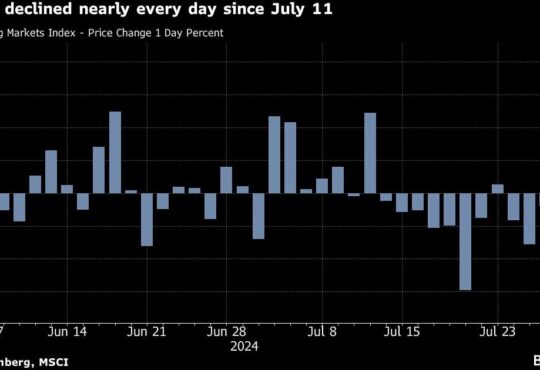
Table of Contents
Show more
Show less
Need currency for a European trip? You’ll want to get the best possible value when buying your euros. Here we explain the various options and their relative costs, plus the pros and cons of each method of currency exchange.
How can I buy euros?
There are various options when it comes to buying euros as cash, such as:
- at your bank
- at the airport
- at the Post Office or supermarket bureau de change
- at an online currency specialist
- with an online currency account
Each option comes with pros and cons, and what might suit one traveller won’t suit another. We’ve explained each option in more detail below.
At your bank
It can be tempting to head straight to your own bank if you require foreign currency as cash. But while this may be convenient, it’s rarely going to offer the best value.
That’s because banks tend to charge higher fees for currency exchange and often have uncompetitive exchange rates, too. You can find out more with our guide on where to exchange currency.
Pro Tip
If you are a member of a supermarket loyalty reward scheme, such as Sainsbury’s Nectar and Tesco Clubcard, you may get better currency exchange rates
At the airport
The same tends to apply when buying currency at the airport. This can be a quick and highly convenient option – and many bureau won’t charge fees or commission. However, this convenience comes at a price as you’re likely to get the very worst exchange rates at an airport compared to getting organised and buying your euros in advance.
At a Post Office or supermarket bureau de change
The currency deals in Post Office and supermarket bureau de changes can be competitive, so if you want hard currency and have time to shop around, it can be worth comparing the exchange rates and fees on offer here.
You can check out the rates and offers online on the providers’ websites rather than going in person, though. Here you’ll also find currency calculators with which you can easily compare costs of each pound-to-euro transaction.
In some cases you’ll be able to get a better pound sterling to euro exchange rate if you purchase a larger sum of currency, such as £1,000 or more.
While most high street and retail providers won’t charge an upfront currency conversion fee or commission, their margin (the amount they slice off what they give you) is usually built into the exchange rate they offer, which may not be competitive.
Most providers, including Post Office, Marks and Spencer, Tesco, Sainsbury’s, Asda and John Lewis/Waitrose group, for example, allow you to order euros online and they can be posted out to your home in time for your holiday or trip.
Bear in mind there will usually be a delivery charge, particularly on smaller currency transactions.
At an online currency specialist
Online currency exchange brokers, such as Travelex, Currencies Direct and TravelFX, generally offer more competitive exchange rates compared to high street banks. You can check the exchange rate and any associated fees, such as handling and delivery charges, before proceeding.
Pro Tip
Check out postage or delivery charges on currency when you order online. High add-on charges can eat into the gains you’ve made on a competitive exchange rate.
There may also be minimum transaction levels with some providers, which could be upwards of £300, for example. So this method won’t suit those who want a smaller amount of currency.
These providers will deliver cash to your door so, providing you’ve left yourself enough time, this can prove to be an efficient way of getting your euros.
Just keep an eye out for any add-on charges, including handling fees and postal or delivery charges. For example, buying €360 in cash for home delivery as of 26 July 2024 would cost:
- £312.88 at TravelFX including a handling fee. There is no delivery charge for standard Royal Mail postage
- £315.63 at ASDA (no handling fee but a standard delivery charge of £4.99
App-based currency account
There’s also the option of opening an account with the likes of Wise or Revolut. These app-based providers offer a range of currency-based functions, such as making overseas money transfers, and buying currency (including euros) for spending abroad.
As digital specialists in their field, these providers tend to offer competitive exchange rates and low or no fees when you exchange pounds for euros. You’ll need to open an account, pay in the money, and withdraw it as euros from an ATM once you’re abroad (you’ll be sent a physical card to do this).
Opening one of these accounts is usually free and can be done easily in-app or online.
However, charges tend to apply on ATM withdrawals once you’re away, kicking in after you hit a certain withdrawal limit. This limit is £200 (or after three withdrawals a month) with Wise, for example, and £200 (or after five withdrawals a month) with Revolut. Find out in advance to check if the particular account will be suitable for your needs.
Bear in mind also that the ATM providers themselves may also charge a fee, which will be applied on top.
One point to note here is that many of these providers are electronic money (e-money) institutions and not fully-regulated banks. This means that cash held in the account won’t be safeguarded under the Financial Services Compensation Scheme (FSCS) which applies up to £85,000 per person.
Wise, for example, is an e-money provider.
Revolut was granted a banking licence by the regulator, the Financial Conduct Authority (FCA), in July 2024, which means customers could soon have full FSCS protection – but this protection is not in place yet.
Always check the safety and security offered by your currency account provider before signing up, and ensure you fully understand the risks and level of protection offered.
Going cashless
Given the wide and growing range of options for spending abroad, you may find that getting your euros in note form is no longer necessary. Here’s a few alternative options.
Currensea: this is a relatively new travel debit card already gaining popularity for its convenience and lower costs. The Curresea card is simply linked to your existing bank account to unlock lower-cost spending overseas.
It is free to sign up for via the Currensea app and you can then bring foreign transaction costs down to just 0.5%. Or, with a paid plan (starting at £25 for a year) you can get 0% on all overseas spending using the card.
There are limits on cash withdrawals so check these before you sign up to avoid any surprises further down the line.
Prepaid cards: There’s also a growing range of prepaid travel cards on the market, typically on offer from larger supermarkets such as Sainsbury’s and Asda. These offer a safe way to carry currency when compared to having cash on your person.
The cards, which are contactless debit Mastercard or Visa cards, can be pre-loaded with the euros you’ll need while you’re away. The exchange rate is fixed at the time you buy the currency to put onto the card. Then you can spend and withdraw euros in Europe as required in the same way you would use your bank debit or credit card.
While prepaid cards can offer convenience and security (the card can be immediately frozen online if you lose it, or it is stolen), there will typically be a range of associated fees and charges, both for preloading currency, and then when you spend.
There can also be inactivity fees, for example if you don’t use the card for 12 months, and limits on spending and cash withdrawals. As always, read the small print so you know exactly what to expect.
Using bank cards overseas to spend in euros
Another option is to simply use your debit or credit card to make purchases abroad. However, while this can also be safer and more convenient than carrying currency, be aware that many banks charge high fees for the privilege. These can be in the region of 2.99%, plus £1.50, for an ATM withdrawal.
But not all banks charge fees for using your debit card overseas. Chase, first direct and Starling Bank, for example, don’t charge fees for card transactions or ATM withdrawals abroad. Frequent travellers may be prepared to switch their bank account to one of these providers to take advantage.
There are also a handful of credit cards that have low or no fees for overseas use. A travel credit card can mean big savings on your foreign transaction costs over the course of a holiday.
Pro Tip
Where you are given a choice, always pay in the local currency when overseas. Opting to pay in pounds sterling means you’ll be charged conversion fees – and the exchange rate could also be unfavourable.
Frequently Asked Questions (FAQs)
What’s the best way to buy euros?
The best option for buying euros will depend on your specific transaction, including how much currency you want to buy.
While some providers may offer highly competitive exchange rates on euros, their handling fee might be particularly costly on smaller-sized transactions. So, if you only need to buy a small sum of euros, this won’t be the best option.
It is worth also considering app-based currency accounts and specialist cards that enable you to pay for goods and services in euros overseas with lower or no charges on your foreign transactions. This can double up as a safer option than carrying large sums of euros in cash, too.
If you have time before you travel it can pay to research the market and compare different deals on euros, looking at the exchange rates available, but also any fees and charges attached to the transaction.
Most providers offer a currency calculator on their website so you can easily compare. This way you can identify the best value deal for your needs.
Is it better to use a card or withdraw euros in cash to use abroad?
There are pros and cons to both options and how you want to manage your holiday money while you’re away comes down to preference.
Many travellers find using a combination of cash and card spending works best as it helps to balance any fees you might be charged, as well as fluctuating exchange rates, and the security aspect of carrying large sums of cash.
Just bear in mind that some debit cards and credit cards are much better than others when it comes to overseas use.
What is the pound to euro exchange rate?
The pound has been fairly stable against the euro for the past few years – and £1 would buy you between €1.15 and €1.19 in recent months (accurate as of July 2024).
However, it’s easy to use our currency converter to get a daily update on exchange rates.
When the pound is strong against the euro, this means your £1 buys you more.
This is good for holidaymakers travelling from the UK to Europe as they should get better value for money on their spending and when buying euros in a currency conversion.



